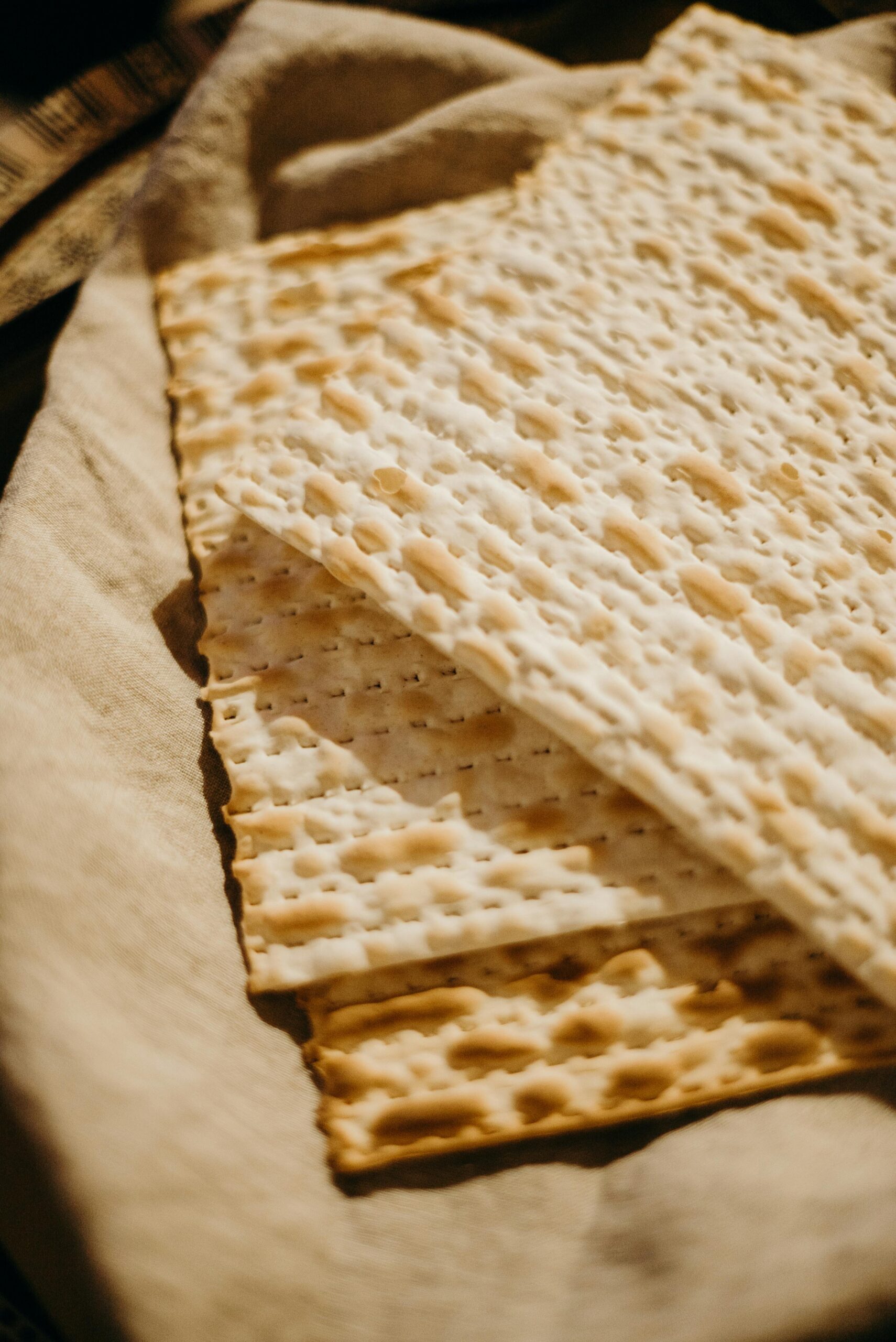Passover Seder Resources and Recommendations from JRC
updated for 5784/2024
Our spiritual task at Passover is to keep our hearts from hardening, and to use our ritual of symbols and story to both allow the devastation of this moment—crumbly and fragile as matzah—and a vision of future wholeness and healing—full as Elijah’s cup of wine—to show up together. This year we are most certainly not free; how will we work together for a liberation where everyone can thrive in safety?
Your seder might include real tears along with the salt water. It might also include silly songs and familiar recipes, collecting donations to solidarity organizations and food banks. It might also include time to write to your legislators to take action, or asking more questions. We are a people of story and symbol: These are some of JRC’s recommendations, compiled by Rabbi Rachel, to make your Passover more meaningful and more relevant this year (and every year).
Haggadot
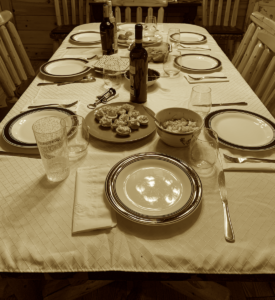 A Night of Questions: A Reconstructionist Haggadah
A Night of Questions: A Reconstructionist Haggadah
Published by Reconstructing Judaism with commentaries by Reconstructionist rabbis and leaders, with different seder”tracks” and options.
Reconstructionist Haggadah Supplements to add more voices of Jews of Color (New in 2023!)
In January 2023, the Reconstructionist Movement completed a multi-year process of passing a movement-wide resolution on reparations. To support the commitments of the resolution, the Tikkun Olam Commission is creating a new series of supplements to the Passover Haggadah that can be helpful entry points to the reckoning and reflection work of reparations at your Passover Seder.
Ritualwell: Tradition and Innovation from Reconstructing Judaism
Explore rituals, poetry, symbols, and other creative ritual innovations from our movement, with content created by Reconstructionist Jews around the world
Rabbi Rachel Barenblat (blogs as The Velveteen Rabbi) works with a cohort of rabbis, educators and artists to create a slide-deck version of the Haggadah with contemporary interpretations, rituals and reading, Tiles you can purchase for gaming, and other interactive elements.
An engaging adventure for curious kids and their grownups
A Different Night: The Family Participation Haggadah and A Different Night: The Haggadah of Contemporary Voices
Click here to listen to Mishael Zion’s commentary on this Haggadah in a Post-October 7 podcast.
Created by Noam Zion and Mishael Zion, an education-rich Haggadah with articles, artwork, and designed for a deep dive into the content and meaning of the Passover experience
Designed for families with younger children, to explain and engage throughout the Seder.
For those who want to create an entirely new haggadah for your own use, this site has materials to draw from with thousands of free options to include. This version uses video clips to teach each element of the seder.
Love and Justice Haggadah (2003)
Crowdsourced in 2003, this Haggadah is a compilation of personal stories, narratives, poetry and commentaries from the perspective of radical inclusion and liberation in the time of war.
Written by Dr. Tarece Lynette Johnson, she writes, “Global Diversity Haggadah provides a personal window into my life and identity as a Jew. I am sharing this book to provide my perspective related to a multicultural celebration of freedom.
This Haggadah contains Torah verses, blessings and diversity and justice themed poems. It also includes suggested activities, songs and resources. It may be used as a supplement to a traditional Seder or as the primary resource.”
Food For Thought: Essays to Prepare
 Reconstructionist Rabbis Teach: Engaging Passover in This Moment of War and Trauma
Reconstructionist Rabbis Teach: Engaging Passover in This Moment of War and Trauma
Rabbi Joshua Boettiger on Expanding the Telling of the Passover Story
Rabbi Michael Strassfeld on Disrupting Judaism
Evolve: Pesakh 2024 Essay Collection
Rabbi Isaac Saposnik of Camp Havaya: What Should We Tell the Children?
Kveller Haggadah: 7 Ways to Address October 7 at your Family Seder
Why is this Passover different from all other Passovers? So many of us are still reeling from the October 7 attack in Israel and the ongoing war. And while a seder brings the opportunity to lean on tradition, you may also want to acknowledge this unprecedented time in a way that feels right for your gathering. We hope this guide of seven extra rituals and elements for your seder offers an opportunity to reflect, mourn and celebrate as a family and community this Passover.
Passover Freedom and Justice Supplement 2024 Mishkan Shalom
Rabbi Shawn Zevit, rabbi of Reconstructionist congregation Mishkan Shalom (a JRC-like community) shares his supplements of resources and rituals.
The Broken Matzah: Pesach 5784
Bayit Liturgical Arts Project asks, How do we celebrate Pesach in a year like this one? Everything about the seder lands differently after the last six months. This offering emerges out of our grief and our hope. No two pieces are coming from exactly the same place. There are so many emotions — even within a single heart, much less around any given seder table. We hope these prayers, poems, and works of art will help you make this Pesach what you need it to be.
Seder Interrupted: A Post-October 7 Haggadah
Written by Rabbi Menachem Creditor, he describes, “This year, as so many are struggling with the events of October 7, the tragic suffering of Israeli hostages, and the rise of Antisemitism in the United States and beyond, the texts and observances of Passover are open to new and difficult meanings, new interpretation, and deep connections. How are we thinking about the definition of freedom this year?”
Note: This haggadah has an explicit commitment to Zionism as part of its creation. You can read JRC’s statement on the conflict in Israel-Palestine here.
FFC Passover Haggadah From the River to the Sea
This Haggadah was created by Families For Ceasefire in Philadelphia. They describe, “This year we think of the narrowest of places, the Gaza Strip, where two million people–including one million children–are trying to survive ongoing siege, bombing, and starvation. Thousands have made the extremely difficult decision to try to escape this narrow place, to escape into Egypt, not towards liberation but simply away from genocide.
Note: This haggadah has explicit commitments to AntiZionism as part of its creation. You can read JRC’s statement on the conflict in Israel-Palestine here.
Freedom For All Seder signup with IfNotNow, All That’s Left and JFREJ
The creators write, “As a growing international movement of Jews calling for an end to the violence and oppression in Israel/Palestine and a thriving future for all, we have come together to host Freedom for All Seders around the world.” This is a form to sign up for seder resources and hosting in collaboration with IfNotNow, All That’s Left, Jews for Racial and Economic Justice.
Note: these resources have AntiZionism and NonZionism as values throughout their work. There is not an explicitly Zionist component. You can read JRC’s statement on the conflict in Israel-Palestine here.
Social Justice Resources and Supplements
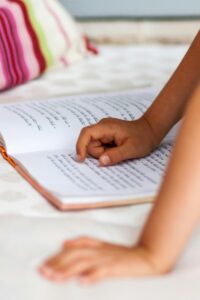 Avodah: The Jewish Service Corps
Avodah: The Jewish Service Corps
Has a compilation of social justice texts, resources and rituals, from full haggadot to readings and supplements
T’ruah: The Rabbinic Call for Human Rights
Order or download their haggadah, The Other Side of the River, The Other side of the Sea. T’ruah’s haggadah helps transform the seder into a conversation about immigration, racism, workers’ rights, and forced labor.
Keshet: For LGBTQ Equality in Jewish Life
Use these readings and reflections to enhance your holiday and engage with the ongoing work of justice and LGBTQ+ liberation.
HIAS: Welcoming the Stranger, Protect the Refugee
A full haggadah and supplements, to include a deeper exploration of the global refugee crisis at your Seder.
Matir Asurim: Jewish Care Network for Incarcerated People
These study materials are prepared and shared to spur greater attention within Jewish communities to the needs of incarcerated Jews and of others in Canadian and US carceral systems.
Black Lives Matter Haggadah Supplement
“Jews For Racial & Economic Justice collaborated with inspiring activists and leaders from around the country to produce this Haggadah supplement… intended to highlight the role we believe Jews must play in confronting racism and abusive policing. Each piece of the supplement may provoke discussion, reflection or even contention. We hope that this wrestling, thinking and feeling — in the great tradition of our people — will be a powerful part of your Seder and will lead to meaningful action for justice.”
A Few Poems in Particular:
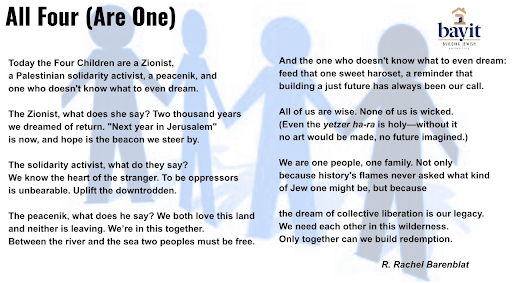
Freedom (Passover Poem)
by Rabbi Shawn Israel Zevit
Gathering the mixed multitudes in my soul
I rummage through my belongings
In preparation for leave-taking
What aspects of myself
Do I need to make the journey
What can I leave behind
To memory in the narrow places
Maybe this year, we will go out together
In broad daylight
Not in the still of the night
In no haste
Soul in Soul
Holding each other in loving compassion
Knowing we will cross together
Finding home at last for our mixed multitude
In the depth of Divine waters
That part willingly
Towards the shores the world as it may yet be
What if no one drowned this year
Confusing domination and power
What They Did Yesterday Afternoon
by Warsan Shire
i’ve been praying,
and these are what my prayers look like;
dear god
i come from two countries
one is thirsty
the other is on fire
both need water.
later that night
i held an atlas in my lap
ran my fingers across the whole world
and whispered
where does it hurt?
it answered
everywhere
everywhere
everywhere.
Red Sea: April 2002
by Aurora Levin Morales
This Passover, who reclines?
Only the dead, their cupped hands filling slowly
with the red wine of war. We are not free.
The blood on the doorposts does not protect anyone.
They say that other country over there
dim blue in the twilight
farther than the orange stars exploding over our roofs
is called peace.
The bread of affliction snaps in our hands like bones,
is dust in our mouths. This bitterness brings tears to our eyes.
The figs and apples are sour. We have many more
than four questions. We dip and dip,
salt stinging our fingers.
Unbearable griefs braided into a rope so tight
we can hardly breathe,
Whether we bless or curse,
this is captivity.
We would cross the water if we knew how.
Everyone blames everyone else for barring the way.
Listen, they say there is honey swelling in golden combs, over there,
dates as sweet and brown as lovers’ cheekbones,
bread as fragrant as rest,
but the turbulent water will not part for us.
We’ve lost the trick of it.
Back then, one man’s faith opened the way.
He stepped in, we were released, our enemies drowned.
This time we’re tied at the ankles.
We cannot cross until we carry each other,
all of us refugees, all of us prophets.
No more taking turns on history’s wheel,
trying to collect old debts no-one can pay.
The sea will not open that way.
This time that country
is what we promise each other,
our rage pressed cheek to cheek
until tears flood the space between,
until there are no enemies left,
because this time no one will be left to drown
and all of us must be chosen.
This time it’s all of us or none.
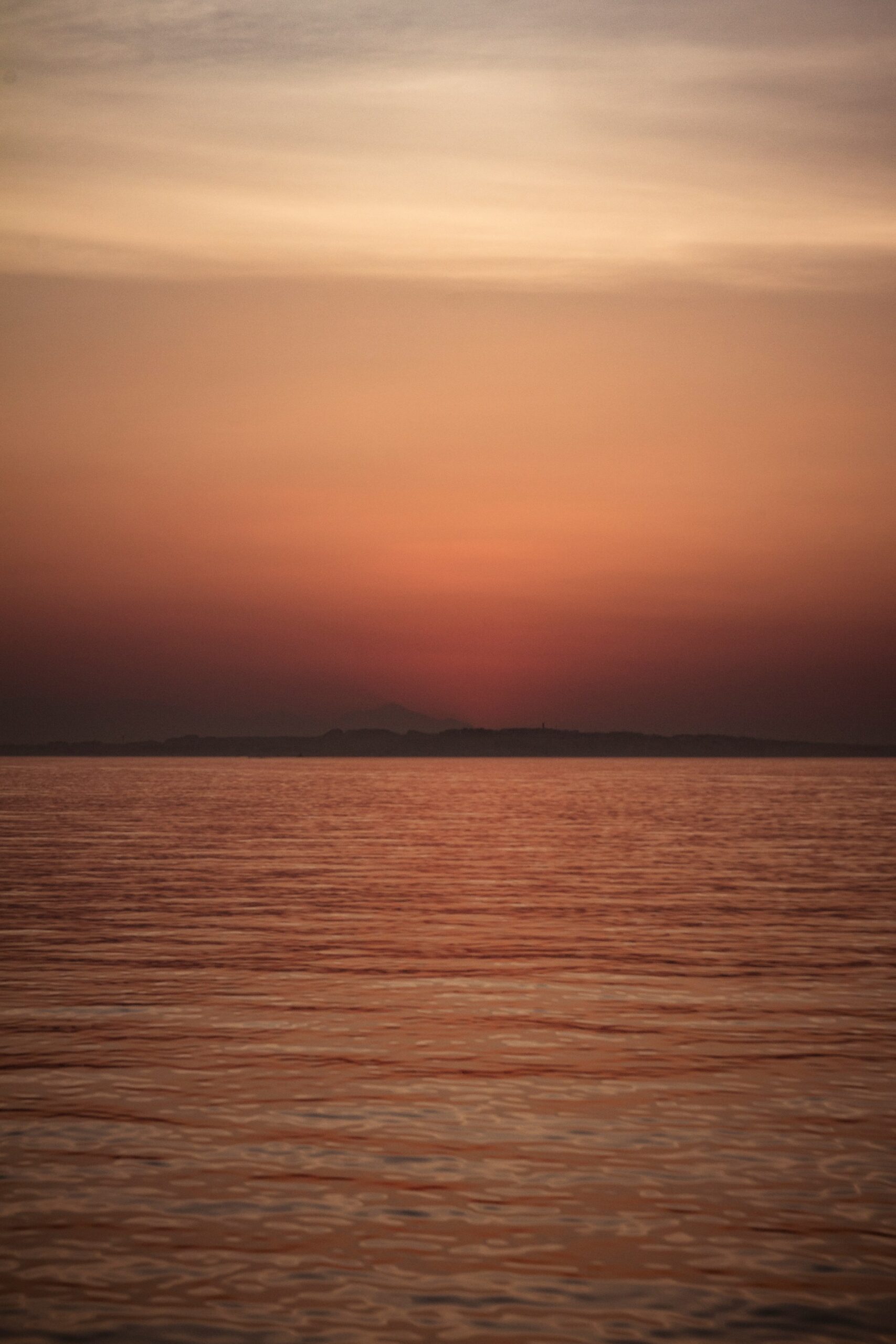
Yachatz – Come and Break Me
by Rabbi Sonja K. Pilz PhD
The Seder is teaching
That nothing stays
Whole, Clean, and Innocent.
Crumbs everywhere in the house we just cleaned. Always a word or two too much is spoken.
The red drops of wine dripping heavily from our fingertips.
And also, among others, the moment we reach under the blanket, beautiful and kosher,
For the ones Protected, and Dry, and Hidden, and Break their middle apart.
This year, come and break me.
Break me into crumbles.
Spread and hide my crumbles in every corner of my house.
Tell everyone to start searching even before the end of the dinner, for each single piece,
Especially the little ones, of this matzah once-whole.
This year, I am taking this matzah,
The broken matzah, a symbol of sin and
A symbol for—eventual—peace,
And I am crying, my tears wetting the matzah,
The wetness turning a ritual into something mushy, and I am crying because of the sins bringing about this mush and this breaking, and
The frailty of the hope to become whole again.
And I believe.
I drip the wine.
I hide the matzah.
I read the words.
I live as if I knew what’s on the next page.
I live as if there was peace—even just for this one night.
This night is the night of protection,
In the midst of what is broken,
It is a night for our children,
It is a statement of believing,
Of not giving up on the hope to heal.
Baruch atah Adonai, Rofeh haSh’vurim.
Praised are You—you will put me together again.
